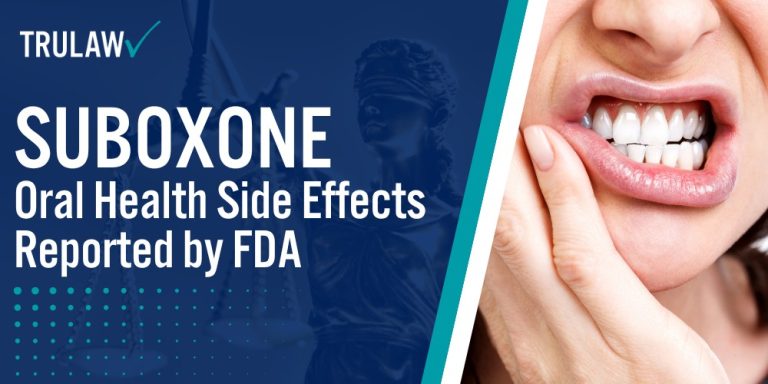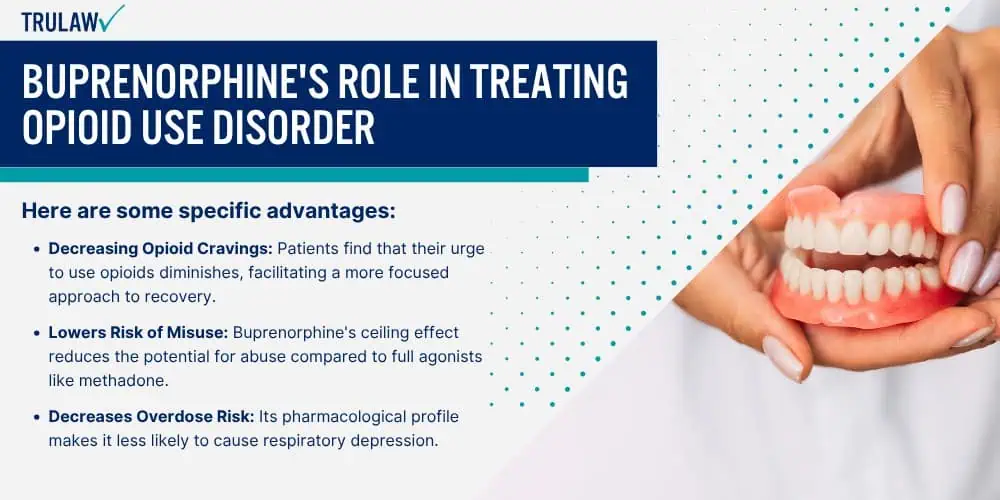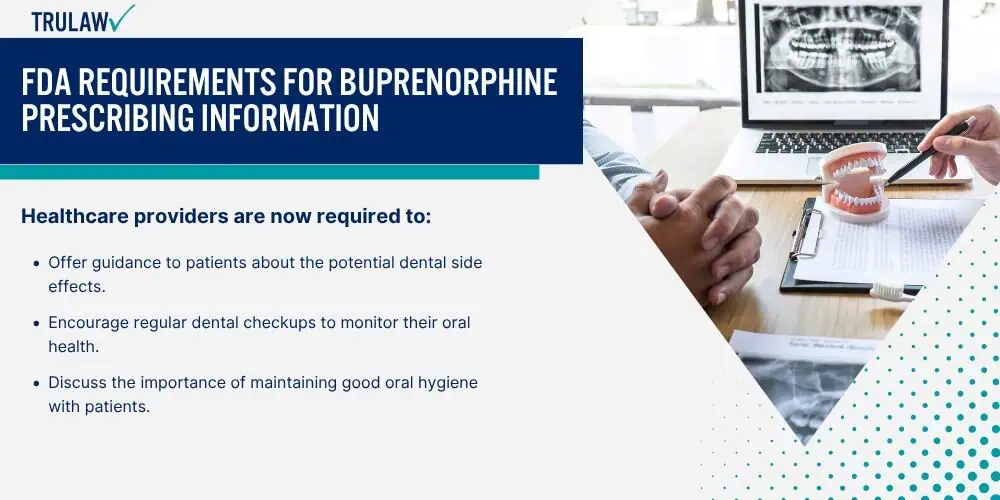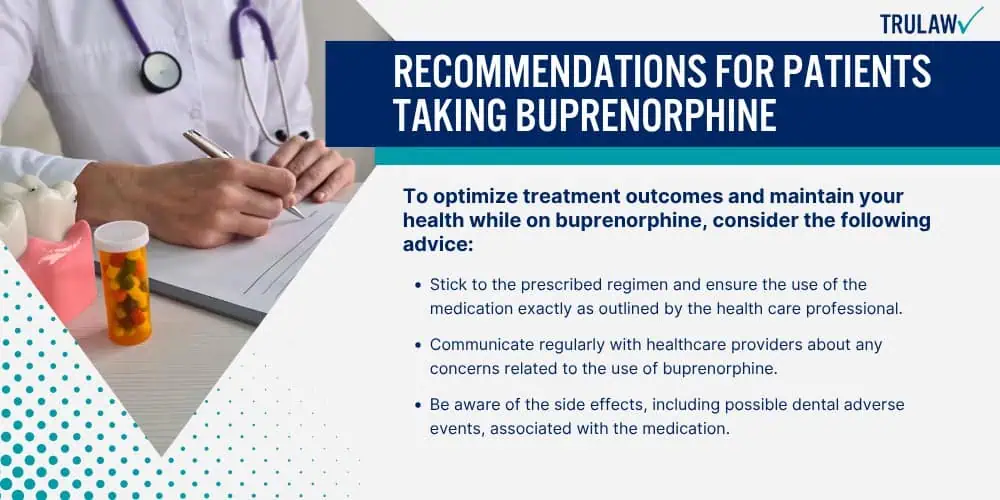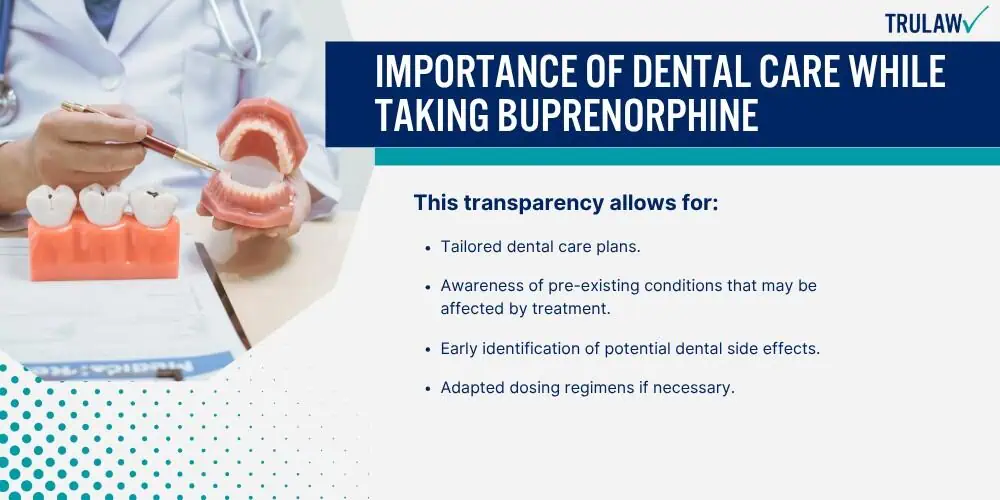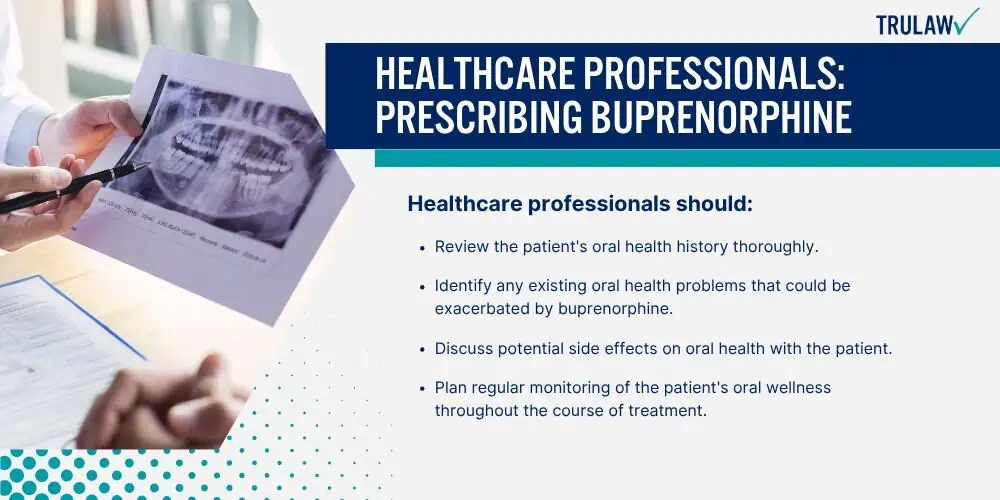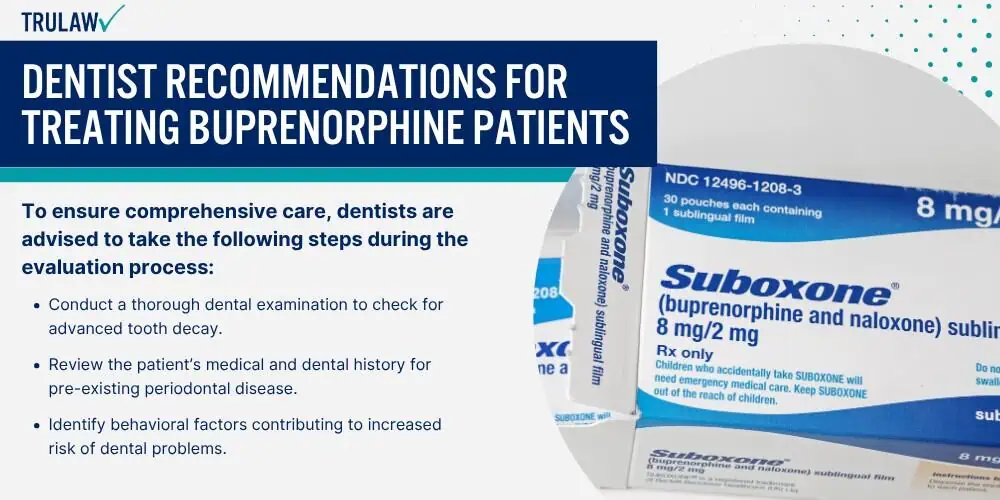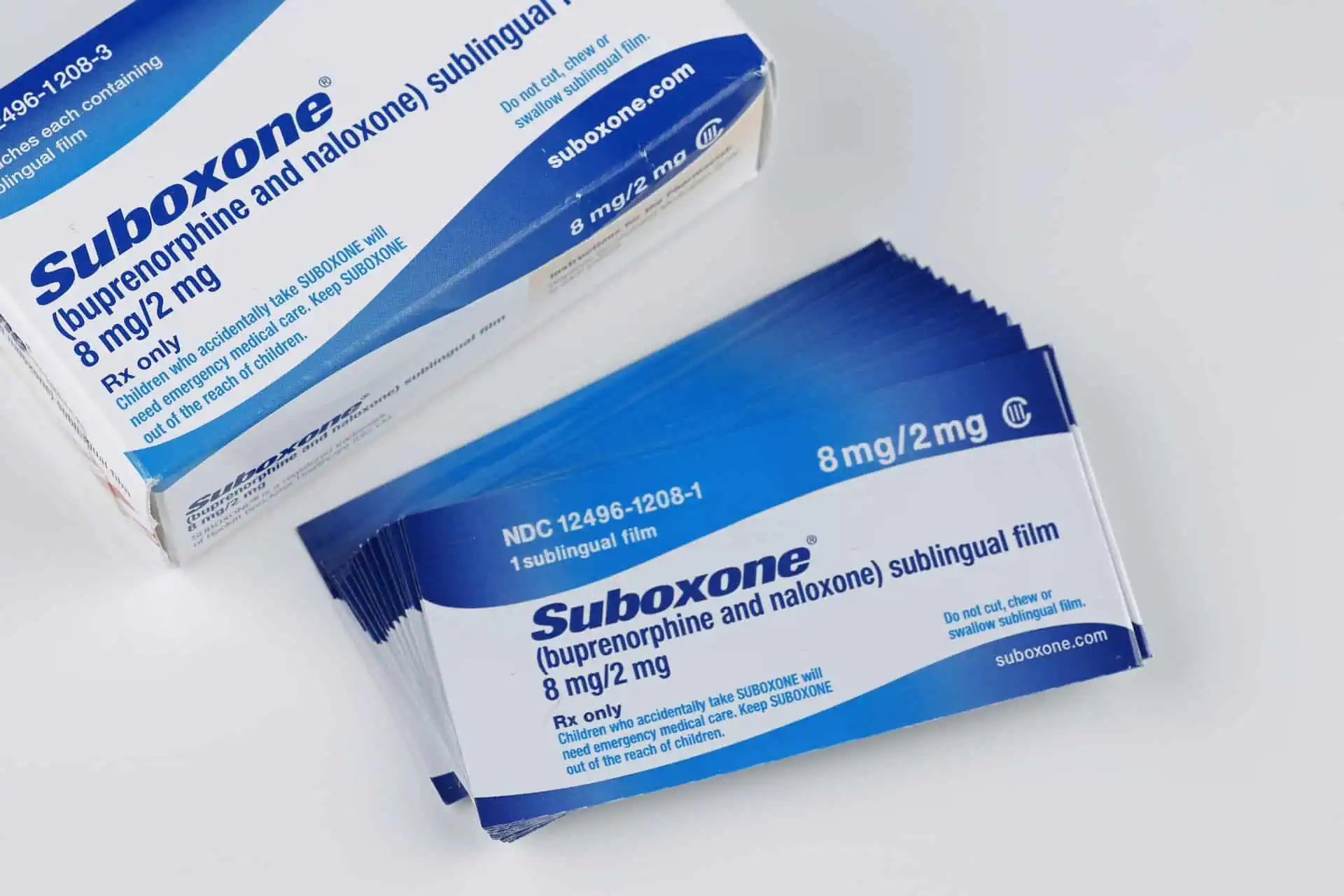On this page, we’ll discuss an overview of Suboxone oral health side effects, outline the implications for dental health, delve into the FDA’s warnings about dental problems with buprenorphine, explore the specifics of transmucosal buprenorphine medicine, consider the impact of severe dental adverse events, and much more.
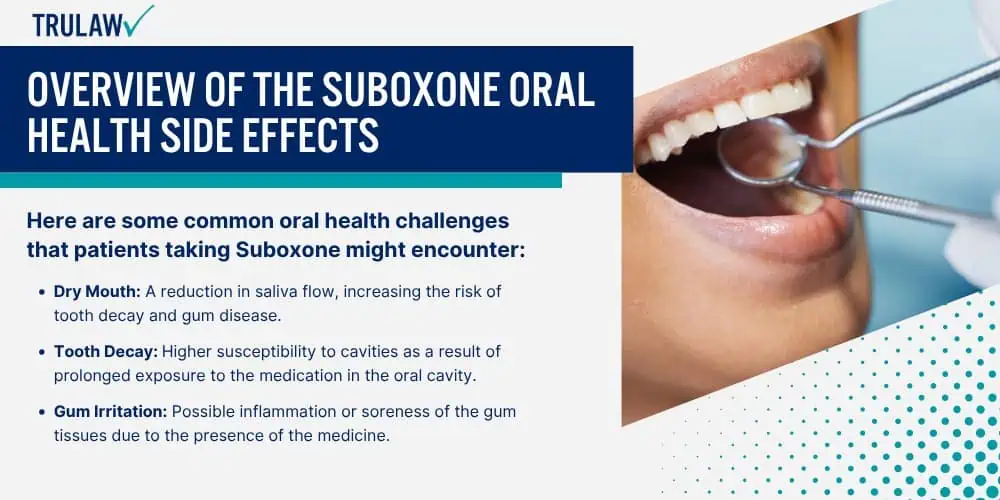
Introduction to Suboxone Oral Health Side Effects
Suboxone, a medication used to treat opioid addiction, can lead to side effects impacting oral health.
Patients may experience various dental issues due to the method of medication administration, which typically involves dissolving the drug in the mouth.
Here are some common oral health challenges that patients taking Suboxone might encounter:
- Dry Mouth: A reduction in saliva flow, increasing the risk of tooth decay and gum disease.
- Tooth Decay: Higher susceptibility to cavities as a result of prolonged exposure to the medication in the oral cavity.
- Gum Irritation: Possible inflammation or soreness of the gum tissues due to the presence of the medicine.
- Dental Erosion: Potential for the erosion of enamel over time, leading to heightened teeth sensitivity.
FDA Warning About Dental Problems with Buprenorphine
The FDA warns about dental problems regarding tooth decay stemming from medications containing buprenorphine, such as Suboxone, when taken orally.
They have reported occurrences of dental complications when the drug is completely dissolved in the mouth.
The FDA’s warning highlights several key points patients and healthcare providers should be aware of:
- Dental Problems Reported: Patients have experienced dental issues ranging from tooth decay to more severe oral health complications.
- Importance of Dental Hygiene: Emphasis on maintaining rigorous oral hygiene to mitigate the impact of Suboxone on dental health.
- Healthcare Provider Guidance: The FDA advises healthcare providers to educate patients on the potential oral side effects and preventive care.
- Monitoring Oral Health: Regular dental check-ups are recommended for early detection and management of dental adverse events.
